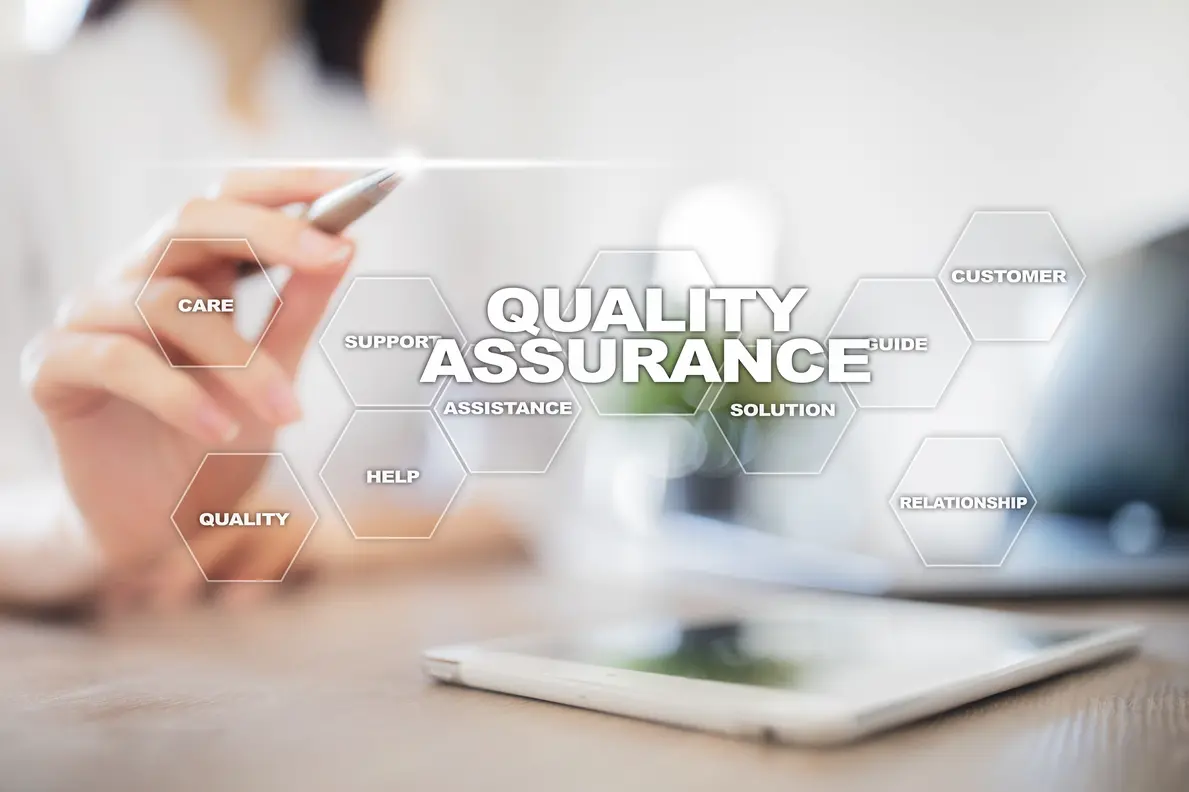For businesses venturing into the world of digital product development, understanding the importance of QA testing can be the difference between success and failure. But with so many questions swirling – what types of testing are necessary? Do I even need QA? – the process can feel overwhelming.
This guide is your roadmap to navigating the world of QA. We'll address your key concerns, explore the different testing options available, and demonstrate how Jalasoft's QA expertise can empower you to:
Deliver a flawless digital product: Ensure your app, website, or software functions smoothly and exceeds user expectations.
Boost user satisfaction: Limit bugs and glitches that can frustrate users and damage your brand reputation.
Save time and money: Catch and fix issues early on in the development process, preventing costly rework down the line.
Gain a competitive edge: Deliver a high-quality product that stands out in the crowded digital marketplace.

Why is QA Testing important in Software development?
In the world of software development, QA testing plays a critical role, acting as the unsung hero that ensures a successful product launch.
At its core, QA testing is all about ensuring functionality and quality. Testers meticulously examine the software, identifying bugs, errors, and inconsistencies before the software reaches the hands of your users. These issues, if left undetected, can lead to crashes, unexpected behavior, and a user experience riddled with frustration. By proactively addressing these problems through QA testing, you lay a solid foundation for a smooth-running and reliable software product.
QA testing goes beyond simply checking if the software functions as intended. Testers take on the role of the user, evaluating how users interact with the software. They identify areas where the software might be confusing, difficult to navigate, or lack user-friendliness. This user-centric approach helps uncover issues that could lead to user abandonment and, ultimately, a product that fails to gain traction. By addressing these usability concerns through QA testing, you create a more intuitive and enjoyable experience for your users, fostering loyalty and encouraging continued use.
QA testing plays a crucial role in cost control during software development. Catching bugs and errors early in the development cycle is significantly cheaper than fixing them after the software is released. Imagine the additional resources and time required to address widespread issues after a product launch. QA testing helps prevent this costly scenario by identifying and resolving problems early on, saving you time and money and reducing the headache of post-release fixes.
Although QA testing might seem like too big of an investment, it is an investment in the success of your software. By ensuring a high-quality and user-friendly product, you not only avoid costly rework but also build user confidence and trust. In a competitive market, a well-tested and reliable software product can give you a significant edge, allowing you to stand out from the crowd of millions of similar digital products.

Is Nearshore QA only for big businesses?
While large corporations often have dedicated Quality Assurance (QA) teams, smaller businesses might hesitate to invest in such resources. However, ensuring the quality and functionality of your digital product, whether it's an app, website, or software, is crucial for success, especially in smaller businesses. This is where nearshore QA comes in, offering a compelling solution for businesses of all sizes.
Don't let the initial investment of outsourcing QA deter you. It can be a strategic move that actually reduces your project's overall costs. QA outsourcing allows you to leverage a flexible cost structure. Many vendors like Jalasoft offer customized payment plans based on your specific needs and budget. This enables you to access a team of highly skilled and experienced QA professionals at a fraction of the cost of building an in-house team.
Before diving into outsourcing, take a deep dive into your existing QA processes. Conduct a comprehensive assessment that analyzes your current procedures and workflows. This involves scrutinizing every aspect of your QA framework, from the methodologies used for testing to the communication channels with developers. By taking stock, you can identify areas that may benefit from improvement or outsourcing.
This assessment serves a crucial purpose: pinpointing specific challenges or gaps in your current QA setup. Here's what you'll uncover:
Testing Efficiency: Are your testing processes optimized for speed and effectiveness? The assessment will reveal any bottlenecks hindering your workflow and identify areas for improvement.
Workflow Bottlenecks: Are there any delays or inefficiencies stalling your progress? A thorough assessment will help you identify and address these bottlenecks.
QA Strategy Effectiveness: Is your current QA strategy delivering the desired results? The assessment will evaluate the overall effectiveness of your approach and uncover any areas where outsourcing could provide significant benefits.
By taking the time to assess your current QA landscape, you'll gain valuable insights that will empower you to make informed decisions about outsourcing. You'll understand your specific needs and challenges, allowing you to select the best QA outsourcing partner to optimize your development process and deliver a high-quality product.

Can anyone perform QA testing?
No, not everyone can perform effective QA testing. While some basic functionality checks might seem straightforward, thorough, and successful, QA testing requires a specific skill set and experience.
Effective QA testers possess a solid understanding of software development principles and testing methodologies. They can delve into the software's technical aspects, identify potential issues, and design comprehensive test cases to ensure all functionalities are working as intended.
Furthermore, QA testers have a keen eye for detail. They meticulously examine the software, spotting even the most minor bugs or inconsistencies that could impact the user experience. This meticulousness ensures a polished and user-friendly final product.
Lastly, QA testing is not just about identifying problems; it's about understanding their root causes. Testers have strong analytical skills, which allow them to dissect issues, trace their origins, and work with developers to find effective solutions.
At Jalasoft, we understand the importance of exceptional QA testing. That's why we go beyond basic hiring practices. Our QA engineers are in the top 2% of Latin America, and they are meticulously selected for their talent and potential. But it doesn't stop there. We invest heavily in their training, providing them with the most up-to-date methodologies and industry best practices. This rigorous training program, combined with their inherent skillset, equips them to handle the most complex projects and deliver exceptional results.
What is the Difference Between a QA Engineer and a Software Tester?
The roles of a QA (Quality Assurance) Engineer and a Software Tester often overlap, but they have distinct responsibilities and focuses within the software development lifecycle. Here's a breakdown of their differences:

What Can I Expect from Jalasoft’s QA Testing Services?
Our approach is rooted in building enduring relationships that provide consistent and reliable QA expertise tailored to the evolving needs of your projects.
Founded by six seasoned Quality Engineers, Jalasoft has ingrained QA methodology as a core competency, ensuring a meticulous and strategic approach to software testing. With over 20 years of experience in software development and testing, and by producing and hiring the top 2% of talent in the industry, our QA engineers are equipped to think critically, design comprehensive test strategies, and work tactically to align with the goals and scope of each system, guaranteeing your software not only performs flawlessly but exceeds user expectations.
Clients will benefit from Jalasoft’s flexible and adaptive QA services, which are designed to integrate seamlessly with your existing teams. By augmenting your staff with our top-tier QA engineers, we provide the expertise and scalability needed to handle the complexities of modern software development.
Half of our 1000+ engineers specialize in Quality Assurance and Test Automation services and are involved in over 80 active projects. Our engineers adapt effortlessly between automation and manual testing based on evolving project requirements, ensuring an agile development and responsive software QA process. This partnership model ensures that we become an integral part of your team, consistently working towards optimizing reliability and minimizing risks throughout the software development lifecycle.
Whether you need QA support, Test Automation professionals, or both, we’ve always got you covered.
